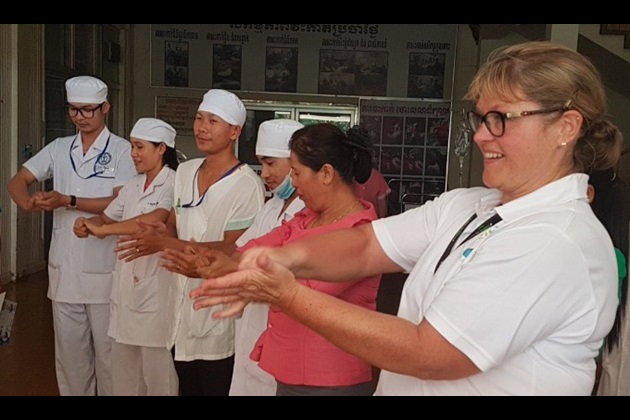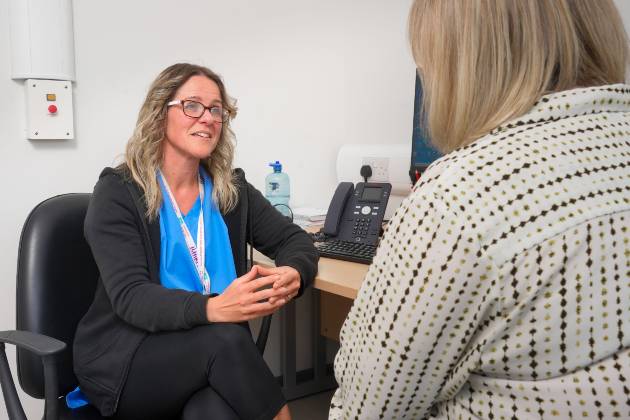Quality assurance matron Sally Young flew to north-west Cambodia to share her clinical expertise with hospital staff. She tells us what she saw
RCN member Sally Young has been a registered nurse since 1990. She served for 18 years in the Territorial Army, worked in emergency care for 17 years, and is a nurse practitioner. She has seen and done much as a nurse.
Even so, when she went to Cambodia last year as part of a group of volunteers helping to drive improvements in clinical practice, she was shocked by some of what she saw, particularly the poverty among patients in the hospital where she spent a week.
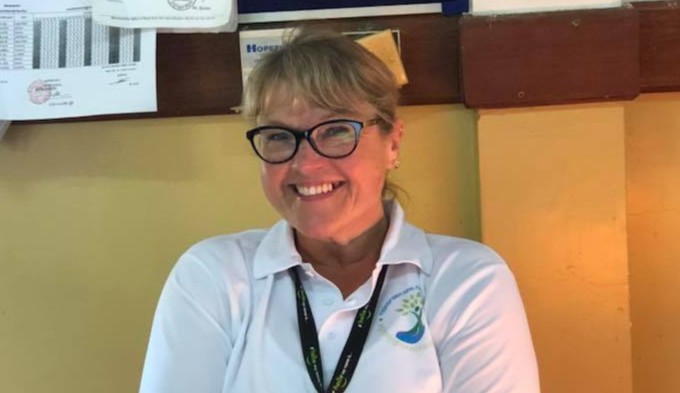
Cambodia is still recovering from its recent history. In the 1970s, the murderous regime of communist leader Pol Pot instigated genocide that left an estimated two million Cambodians dead.
Transform Healthcare Cambodia, the UK charity that arranged Sally’s trip, says that by the time the killing stopped, just 10 doctors in the entire country had survived.
Today, the charity offers education, training and clinical expertise, principally in Battambang Province in Cambodia’s north west. One of the charity's directors, Sue Smith, is Executive Chief Nurse at University Hospitals of Morecambe Bay NHS Foundation Trust, where Sally is now quality assurance matron.
A challenging environment
Sally visited Battambang Hospital last November, along with Catherine Randall, Deputy Head of Safeguarding at NHS England and other volunteer health professionals from specialties that included paediatrics, alcohol liaison and emergency care. They were asked by the charity to undertake work around patient safety, including reporting and learning from incidents.
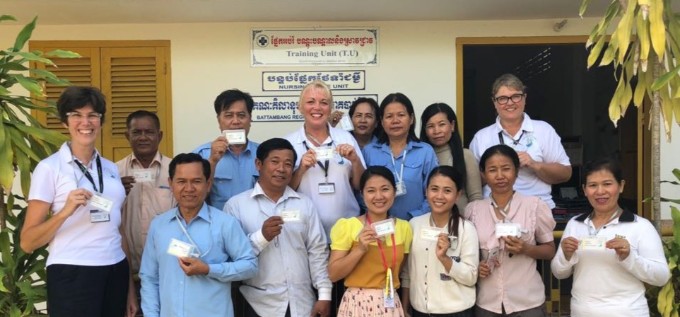
The experience was a “massive eye-opener”, says Sally, a member of the RCN Professional Nursing Committee. “In Cambodia, they are no less caring than us, but it’s a really challenging environment.”
Battambang Hospital has about 200 beds – but they’re nothing like those in UK hospitals, says Sally. “They’re metal frames with thin mats on top, like beach mats,” she says. “The incidence of pressure ulcers is high. Relatives sleep on the floor underneath the beds because they’re responsible for much of the nursing care and for feeding the patient.”
Relatives are responsible for much of the nursing care and for feeding the patient
People seeking treatment queue up at the hospital’s door each morning where a list of prices is displayed detailing the cost of each intervention. Patients are triaged according to need and those who don’t reach the front of the queue before the doors close at 5pm must return the following day.
World Health Organization figures show the scale of Cambodia’s impoverishment. In 2014, per capita expenditure on health care was $183. In the UK, the figure was $3,377. Life expectancy in the UK is 80 for men and 83 for women. In Cambodia it is 67 and 71 respectively.
Shifting goalposts
Sally and her colleagues went to Cambodia with detailed plans for the kind of support they thought they might offer. But she says the goalposts shifted every day and instead they simply responded to the need they observed in the hospital. Infection control was among the priorities.
“We spent the second half of the week teaching basic hand hygiene,” says Sally. “Although there were lots of big signs saying how important hand hygiene is, it was absolutely not embedded.”
Hand-hygiene pumps were often empty and in the area with the highest rate of infection, a surgical ward, there wasn’t a single pump.
Although there were signs saying how important hand hygiene is, it was absolutely not embedded
Infection prevention and control is a priority for Transforming Healthcare Cambodia. Limited resources and expertise mean there is an urgent need for simple systems and procedures that work. Sally is hoping that the action plan she devised with local staff, along with regular audit, will produce results.
She says all the staff she encountered were exceptionally keen to learn from the UK visitors and to improve their practice.
Diabetes is another priority. In 2010, out of a population of 15 million, there were about 8,000 deaths related to diabetes. Traffic accidents and misuse of alcohol also carry heavy tolls.
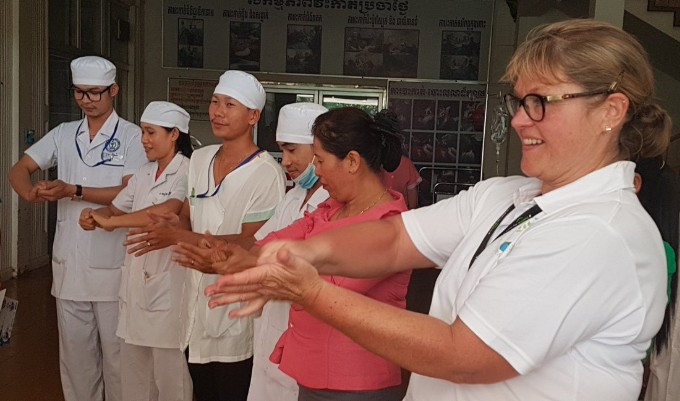
Richer countries have proved willing to support Cambodia’s health system but the results are not always effective. A CT scanner was donated to Battambang Hospital by an American company. Unfortunately, there was no local radiologist trained to interpret the results.
Since Sally returned from Cambodia, a further team of volunteers has visited Battambang Hospital. They've said that handwashing facilities are now installed in all clinical areas and the safety champion role Sally introduced is working well.
Volunteering around the world
- Learn more about volunteering in Cambodia with Transform Healthcare Cambodia. Trips are self-funded – a two-week visit costs around £1,200.
- Find out more about the the RCN's international work.


